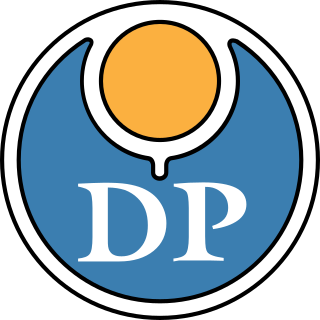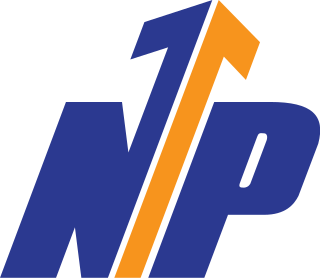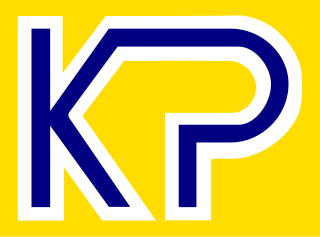Related Research Articles

The Parliament of the Republic of South Africa is South Africa's legislature; under the present Constitution of South Africa, the bicameral Parliament comprises a National Assembly and a National Council of Provinces. The current twenty-seventh Parliament was first convened on 22 May 2019.

Pieter Willem Botha, was a South African politician. He served as the last prime minister of South Africa from 1978 to 1984 and the first executive state president of South Africa from 1984 to 1989.

The Democratic Party (DP) was the name of the South African political party now called the Democratic Alliance. Although the Democratic Party name dates from 1989, the party existed under other labels throughout the apartheid years, when it was the Parliamentary opposition to the ruling National Party's policies.

The National Party, also known as the Nationalist Party, was a political party in South Africa founded in 1914 and disbanded in 1997. The party was an Afrikaner ethnic nationalist party that promoted Afrikaner interests in South Africa. However, in 1990 it became a South African civic nationalist party seeking to represent all South Africans. It first became the governing party of the country in 1924. It merged with its rival, the SAP, during the Great Depression, and a splinter faction became the official opposition during World War II and returned to power and governed South Africa from 4 June 1948 until 9 May 1994.

Helen Suzman, OMSG, DBE was a South African anti-apartheid activist and politician. She represented a series of liberal and centre-left opposition parties during her 36-year tenure in the whites-only, National Party-controlled House of Assembly of South Africa at the height of apartheid.
The Progressive Party was a liberal party in South Africa which, during the era of apartheid, was considered the left wing of the all-white parliament. The party represented the legal opposition to apartheid within South Africa's white minority. It opposed the ruling National Party's racial policies, and championed the rule of law. For 13 years its only member of parliament was Helen Suzman. It was later renamed the Progressive Reform Party in 1975, and then Progressive Federal Party in 1977. The modern Democratic Alliance considers the party to be its earliest predecessor.

The Conservative Party of South Africa was a far-right South African political party that sought to preserve many aspects of apartheid in the system's final decade, and formed the official opposition in the white-only House of Assembly in the last seven years of minority rule. It declined quickly after apartheid ended, before being merged with the Freedom Front in 2004.

The Progressive Federal Party (PFP) was a South African political party formed in 1977 through merger of the Progressive and Reform parties, eventually changing its name to the Progressive Federal Party. For its duration was the main parliamentary opposition to apartheid, instead advocating power-sharing in South Africa through a federal constitution. From the 1977 election until 1987 it was the official opposition of the country.
Frederik van Zyl Slabbert was a South African political analyst, businessman and politician. He is best known for having been the leader of the official opposition – the Progressive Federal Party (PFP) – in the House of Assembly from 1979 to 1986.

The Popular Democratic Movement (PDM), formerly the Democratic Turnhalle Alliance (DTA), is an amalgamation of political parties in Namibia, registered as one singular party for representation purposes. In coalition with the United Democratic Front, it formed the official opposition in Parliament until the parliamentary elections in 2009. The party currently holds 16 seats in the Namibian National Assembly and one seat in the Namibian National Council and is the official opposition. McHenry Venaani is president of the PDM.
The Unionist Party was a pre-apartheid South African political party, which contested elections to the Union of South Africa parliament from the 1910 South African general election until its merger into the South African Party just before the 1921 South African general election.
Clive John Derby-Lewis was a South African politician, who was involved first in the National Party and then, while serving as a member of parliament, in the Conservative Party. In 1993, he was convicted of conspiracy to murder South African Communist Party leader Chris Hani and sentenced to death, a sentence which was later reduced to life imprisonment. Derby-Lewis was described as a "right-wing extremist" by The Daily Telegraph; and as someone who "even by South African standards...has acquired over the years a reputation as a rabid racist" by journalist and South Africa commentator John Carlin.

General elections were held in South Africa on 15 April 1953. The elections consolidated the position of the National Party under D. F. Malan, which won an absolute majority of the 156 elected seats in the House of Assembly, also receiving the most votes. Its first-time majority of the white electorate would be retained until the 1989 elections.

General elections were held in South Africa on 6 September 1989, the last under apartheid. Snap elections had been called early by the recently elected head of the National Party (NP), F. W. de Klerk, who was in the process of replacing P. W. Botha as the country's president, and his expected program of reform to include further retreat from the policy of apartheid. The creation of the Conservative Party had realigned the NP as a moderate party, now almost certain to initiate negotiations with the black opposition, with liberal opposition openly seeking a new constitutional settlement on liberal democratic and federalist principles.

The Tricameral Parliament, officially the Parliament of the Republic of South Africa, was the legislature of South Africa between 1984 and 1994, established by the South African Constitution of 1983, which gave a limited political voice to the country's Coloured and Indian population groups. The majority Black population group was however still excluded, their interests notionally represented in the governments of the black homelands, or "bantustans", of which they were formally citizens. As these institutions were largely politically impotent, its principal effect was to further entrench the political power of the White section of the South African population.

The New Republic Party (NRP) was a South African political party. It was formed as the successor to the disbanded United Party (UP) in 1977 and as a merger with the smaller Democratic Party. It drew its support mainly from the then Province of Natal, and tried to strike a moderate course between the apartheid policy of the ruling National Party (NP) and the liberal policies of the Progressive Federal Party (PFP).
Although the Democratic Alliance of South Africa in its present form is fairly new, its roots can be traced far back in South African political history, through a complex sequence of splits and mergers.
Like South Africa's eight other provinces, the Northern Cape is governed by a parliamentary system, in which the Premier of the Northern Cape is elected by the Northern Cape Provincial Legislature and in turn selects the Northern Cape Executive Council. As in most other provinces, the African National Congress (ANC) has led the Northern Cape Provincial Government since the end of apartheid. In the most recent provincial election, held in 2019, the ANC won 18 of 30 seats in the provincial legislature and the Democratic Alliance was the official opposition in the legislature. Pursuant to the same election, Zamani Saul was elected Premier of the province.
Parliamentary elections were held in Ciskei between 18 and 22 June 1978. The Ciskei National Independence Party won all 50 elected seats. The election was preceded by a wave of arrests and intimidation of opposition party supporters, and 13 opposition candidates lost their deposits. There was also corruption in the operation of the election, as bribes of houses and money had been made to people to vote for the CNIP, and voters were forced to show their completed ballot papers to officials before voting.
Solidarity was a political party created in the lead-up to the 1984 South African general election, which determined the makeup of the first House of Delegates, the body within the Apartheid Tricameral Parliament reserved for Indian South Africans. It took its name from the Polish trade union.p. 40 Its first leader was JN Reddy, an influential banker and businessman with a number of company directorships. To be able to lead the party, Reddy relinquished some of his business interests. Another important party member was Pat Poovalingam, the chairman of weekly newspaper "The Graphic". Solidarity appealed more to South Africans with Southern Indian roots, while Amichand Rajbansi's National People's Party appealed more to those with a North Indian heritage.
References
- ↑ "South Africa: parliamentary elections House of Representatives, 1989". Inter-Parliamentary Union. 6 September 1989. Retrieved 29 August 2019.
- ↑ Ottaway, Marina (1 December 2010). South Africa: The Struggle for a New Order. Brookings Institution Press. p. 225. ISBN 978-0-8157-2046-1.